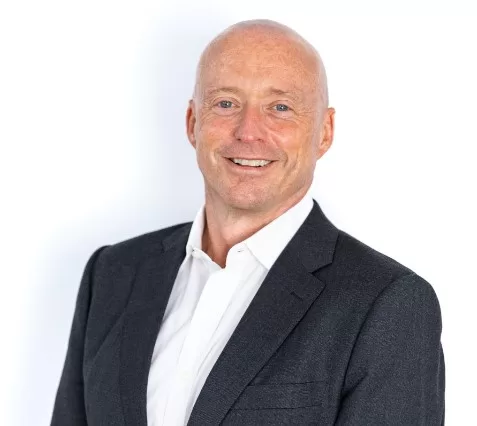
Get more clients and boost retention with ForexVPS.net
Something I always find funny is the contrast between how interested I am in the prime broker concept versus people who interact with them.
For instance, my current employer trades FX with [redacted] and then has a PB relationship with [also redacted]. And I will go, ‘wow I can’t believe we have those in place’. And then everyone who works with them goes, ‘oh yea, those guys, yea they have that summer party once a year and take us to play golf sometimes.’
In the CFD space many prime-of-prime providers have branched out – or are attempting to branch out – into the market for other types of financial institutions, rather than just servicing retail brokers.
For example, a number of providers have widened product sets and iSAM recently hired someone from Barclays, who appears to have mainly focused on sales to hedge funds. IG Prime gives an indication of this trend as well, noting on its website that it provides services to hedge funds, family offices, asset managers, and banks.
I always find claims like this interesting for a couple of reasons. One is that if you are in the asset management industry and want to actually make money, you need a certain level of scale. If you don’t have that scale you won’t make money. But if you do have that scale, it shouldn’t be that difficult to open an account with an investment bank prime broker.
A lot of providers also heavily emphasise their FX offering, which makes sense if you are going after retail brokers but much less sense if you are targeting the hedge fund market, who are unlikely to trade leveraged FX in large volumes.
However, clearly these claims are not coming from nowhere. It’s well documented that investment banks are pulling back from servicing smaller hedge funds. Why they are happy to offload this risk to someone else further down the chain is confusing to me but…whatever.
Another factor appears to be related to this but is more, for lack of a better term, operational and cost driven. For example, there was a good article recently, noting that Hidden Road claims to have seen some success by facilitating the crypto spot vs futures trade in one place, rather than the investor having to use two different PB relationships for it. In a prior article, IG Prime told us that cross margining (basically what Hidden Road is doing on that crypto trade) was one of the attractions of their service.
But taking a step back, I think it’s worth defining what we actually mean and who these potential clients are. The reason for that is ‘hedge funds’ is a phrase, kind of like ‘forex’, that is misused a lot of the time.
For example, you often hear Bill Ackman described as a hedge fund manager. But Ackman mainly invests via a publicly-traded closed-ended fund. So the vehicle he uses is not really what you’d think of as a typical hedge fund, even if hedge fund-style strategies can be accessed via them (BH Macro, for example).
He also only invests in equities with this vehicle and seems to take short positions exceedingly rarely. Again, there are hedge funds with strategies like this, but a long-only equities fund which can be easily accessed via a publicly-traded entity isn’t really what I’d call a hedge fund. To use a different example, no one would call BlackRock Throgmorton a hedge fund, even though it can use CFDs to short the market.
Leaving structure aside, a simpler way to think about hedge funds is probably that…
- They operate using a vehicle that is not easily accessible to regular private investors
- They use derivative instruments to run more ‘complex’ investment strategies, like managed futures, macro, long/short, volatility arbitrage, or event driven
If it is difficult to define what a hedge fund is / does, then pinning down family offices seems even harder. I don’t pretend to be an expert on these but in my limited experience, they are so varied that it makes a concrete definition almost impossible. For example, I have seen…
- A guy that used to be a rates trader at an investment bank, who then retired, got bored, set up an account on Interactive Brokers, then his friends started giving him money to trade because he was doing so well
- Two people that worked for a person at an asset manager who retired. He then got given a load of cash by rich people he knew, so he hired them to manage it alongside him.
- Someone that sold a business in Africa, moved to the UK, and then gave it all to a wealth manager person, who acts as an allocator to other funds
One lesson here is that you should not envy anyone currently being tasked with trying to drum up business from hedge funds and/or family offices! Given how idiosyncratic these people are, finding them must be incredibly annoying, unless they are coming to you directly.
The other factor to consider for both hedge funds and family offices is that they are not like retail brokers, who basically want broadly the same set of products. Every manager in this space is going to have their own strategy and you have to offer a broad suite of products, so that they can actually run that strategy with you. For example, if you were purely offering CFDs on FX and commodities, the likelihood is that you would be catering to a very narrow segment of the hedge fund market.
“Trading strategies – or trading themes – amongst hedge funds and family offices splits down into two clearly defined categories, namely FX and everything else,” said Richard Elston, Head of Institutional at CMC Connect. “FX-only funds make up a very small minority of the overall market, so, for the most part, funds are managed using a genuine multi-asset strategy, with the primary short term objective being for managers to focus on raw returns.”
As noted, this trend appears to have pushed prime of primes, who have historically focused heavily on FX products, into widening the set of services they offer to clients. For example, CMC Connect now has cash equities and is in the process of adding futures and options. It’s a similar story with prime of prime broker 26 Degrees.
“We certainly see strong demand for our multi-asset offering, not just from our broker dealer clients but also our hedge fund clients,” said Andrew Bradshaw, Global Head of Prime, Hedge Funds, at 26 Degrees. “Product demand from hedge funds and family offices extends far beyond this though, and we have an extensive product build pipeline as we continue to grow that business line. This covers futures, cash equities, credit and fixed income, listed options, cleared swaps and custom baskets.”

Another facet of this expansion of services goes back to that operational point about Hidden Road. To draw a comparison, small brokers often want to just focus on marketing and sales. As a result they ‘outsource’ in a number of ways, whether that be by paying for a third-party trading platform or using someone else’s pricing for CFDs, rather than creating their own.
In the same way, smaller funds may just want to trade and not be bothered to handle a lot of the other operational stuff that comes with it. For example, TradeInformer’s rate trading maths savant contact, claimed to have no idea who his prime broker was.
Similarly, a family office that one reader had worked with previously, had ultimately gone to sign up with a prime broker that could give them an end-to-end type service. In this case it was finding the right legal structure for them and putting in place other operational ‘stuff’ that they needed to just trade, which is all they really wanted to do.
In a slightly different way, this is what Darwinex does today. The difference being that people also come to them to build up a track record and connect with prospective investors. But if you actually look at the company, which is regulated as an asset manager, it is almost like you go to them and do your trading, and they then handle all the other parts of the business, like legal, operations, and sales / marketing.
This is also something we see with UAE-based broker ADSS, which has a separate division called ADS Solutions. A key part of what they do appears to be corporate set up. So you tell them ‘hello, I’m a wealthy sheikh and want these nerds I’ve found to quant trade $30m of my money for fun but I am not interested in paying tax’. And then they go and set the fund up for you.
These may seem like anecdotes, but 26 Degrees’ Bradshaw also noted – without prompting on our part – that this is also what the broker is seeing from hedge funds they work with.
“We speak to a wide range of managers globally, all with varying strategies and mandates,” he noted. “From a services perspective, we also see strong demand from managers for capital introduction, outsourced trading and talent introduction services.”
So there you have it readers. The expansion into hedge funds et al is real. But as noted, it’s probably a slog because these people / companies are more difficult to find and, unlike retail brokers, they don’t want to trade in a uniform set of products.


